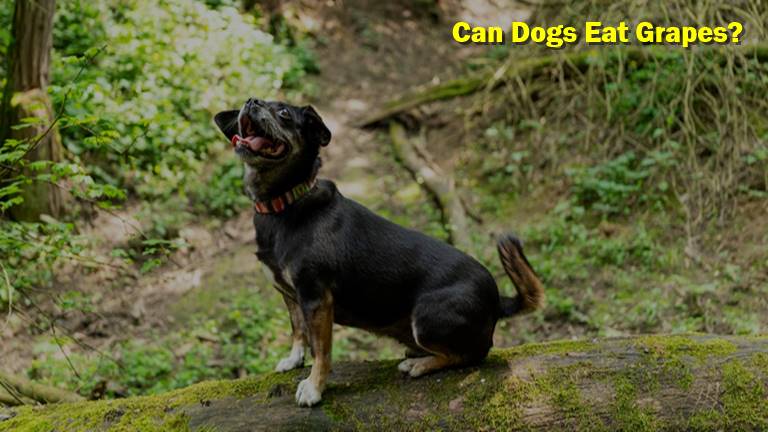As a loving dog owner and a self-proclaimed dog enthusiast, I’ve often found myself questioning the safety of various foods when it comes to my four-legged friends. One question that frequently comes up is – Can dogs eat grapes?
The Short Answer: No, They Cannot
Grapes and raisins are known to be particularly toxic for dogs. Although the exact substance that causes the toxic reaction is not yet identified, dogs should not eat grapes and raisins because even small amounts can prove to be fatally toxic for a dog.
“Dogs of any age, breed, or gender could be affected.”
It’s worth noting that grape/raisin toxicity can even lead to sudden kidney failure in dogs.
Symptoms of Grape/Raisin Toxicity in Dogs
The symptoms of grape or raisin toxicity in dogs can vary greatly depending on the individual dog, the amount ingested, and the overall health of the dog. Here’s a detailed look at each symptom:
Repeated Vomiting
One of the earliest signs of grape or raisin toxicity in dogs is repeated vomiting. This occurs as the dog’s body tries to rid itself of the toxic substance. The vomit may contain pieces of grapes or raisins.
Depression or Lethargy
Dogs suffering from grape or raisin toxicity may appear unusually quiet, unresponsive, or lethargic. They may show no interest in their usual activities and prefer to lie down instead.
Diarrhea
Diarrhea is another common symptom of grape or raisin toxicity in dogs. The stool may be loose and watery, and sometimes may contain blood.
Decreased Appetite
Dogs affected by this condition often lose their appetite. They may refuse to eat even their favorite foods and treats.
Increased Thirst and Urination
Increased thirst and urination are signs that the kidneys are trying to flush out toxins from the body. A dog with grape or raisin toxicity may drink excessively and urinate more frequently than usual.
Kidney Failure
In severe cases, grape or raisin toxicity can lead to acute kidney failure. Symptoms include a complete loss of appetite, unusual stillness or lethargy, decreased urination, and a foul breath smell. Kidney failure is a serious condition that requires immediate veterinary attention.
Remember, if your dog has consumed grapes or raisins and is showing any of these symptoms, it’s important to seek veterinary care immediately. The sooner the dog receives treatment, the better its chances of recovery.
What Should You Do If Your Dog Eats Grapes Or Raisins?
- Stay calm
- Contact your vet immediately
- Do not induce vomiting unless directed by a vet
- Be prepared for your vet to induce vomiting
- Expect follow-up treatment
Stay Calm
The first thing to do if your dog eats grapes or raisins is to stay calm. Panicking will not help your dog and could make the situation worse. Take a few deep breaths and gather your thoughts.
Contact your vet immediately
The next step is to contact your veterinarian immediately. The sooner you get your dog to the vet, the better the chances of preventing serious health problems.
Do not induce vomiting unless directed by a vet
It is tempting to induce vomiting at home if you think your dog has eaten grapes or raisins. However, this is not always the best course of action. In some cases, inducing vomiting can actually make the situation worse. It is important to contact your veterinarian first to get their advice.
Be prepared for your vet to induce vomiting
If your vet does recommend inducing vomiting, they will be able to do it safely and effectively. This is usually the first step in treatment, as it helps to remove any remaining toxic material from your dog’s stomach before it is absorbed into the bloodstream.
Expect follow-up treatment
In addition to inducing vomiting, your dog may also need other treatments, such as activated charcoal or intravenous fluids. Activated charcoal helps to absorb toxins in the stomach and intestines, preventing further absorption into the body. Intravenous fluids help to flush out toxins from your dog’s system and promote kidney function.
How to Keep Your Dog Safe from Grapes
It’s crucial to prevent dogs from eating grapes. Here’s how:
Educate the Household
First and foremost, ensure that everyone in the house is aware of the dangers of grapes to dogs. This includes children and any visitors who may not be aware of the potential risks. A well-informed household is the first step towards prevention.
Store Grapes Safely
Store your grapes in a place that your dog cannot reach. This might be a high shelf, a closed pantry, or even in the refrigerator. Remember, dogs can be surprisingly inventive when it comes to reaching food they want, so make sure your storage solution is truly out of their reach.
Monitor Your Dog
Keep an eye on your dog during meal times or when you’re eating grapes yourself. Be vigilant about dropped grapes and ensure they are picked up immediately.
Train Your Dog
Training your dog to understand the ‘leave it’ command can be extremely useful in preventing them from eating harmful foods. Start by training them with less tempting items and gradually move up to more appealing foods.
Use Alternatives for Treats
If your dog really enjoys fruit as a treat, consider safer alternatives like apples (without the seeds), bananas, or blueberries.
Regular Vet Check-ups
Regular vet visits will help ensure that your dog hasn’t accidentally consumed any grapes. If they have, immediate treatment can prevent serious health issues.
Remember, it’s always better to be safe than sorry when it comes to your pet’s health!
“The love we share with our pets is so much more important than any treat.”
Final Thoughts
As a dog owner and someone who deeply cares about the well-being of our furry friends, it’s essential to be aware of the potential dangers certain foods can pose to dogs.
Grapes and raisins are among those foods that should never be given to dogs, as they can be fatally toxic. The exact substance responsible for this toxicity is still unknown, but the risks are undeniable.
If your dog consumes grapes or raisins, it’s crucial to recognize the symptoms of grape/raisin toxicity, such as repeated vomiting, depression, diarrhea, decreased appetite, increased thirst and urination, and the possibility of kidney failure.
Acting promptly is essential, so contacting your veterinarian immediately is the first step to take. Stay calm, follow their guidance, and be prepared for possible induced vomiting and follow-up treatment.
Prevention is key when it comes to keeping our dogs safe from grapes. Educate your household about the risks, store grapes out of reach, monitor your dog during meal times, and train them to understand commands like “leave it.”
It’s also important to consider safer alternatives for treats, such as apples, bananas, or blueberries. Regular vet check-ups can help ensure your dog hasn’t accidentally consumed grapes, allowing for early intervention if needed.


